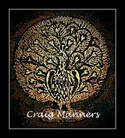|
The Root of All Freedoms: Kuyper on Religious Liberty as Divine Gift
Tuesday, June 7, 2016 By Joseph Sunde at the Acton Institute Blog As persecution intensifies around the world1, and as the incremental fight for religious liberty only begins here in America2, Christians have an obligation to better understand the role of religious liberty and how it intersects with God’s design for political institutions. Unfortunately, as a recent video3 from John MacArthur demonstrates, the confusion is more widespread than I’d like to believe. “We can’t expect religious liberty to exist as some kind of divine right, as some gift from God,” he says. “…We were never promised religious liberty. We were only promised persecution.” MacArthur goes on to paint a confusing and convoluted picture of the Christian’s role in government, arguing that, when it comes to the erosion of religious liberty here in America, it simply “doesn’t matter” because “our political conditions have nothing to do with the advancement of the kingdom of God.” “We don’t fight for quote-unquote ‘religious liberty,’” he says. “We might talk about it. We might vote to make it happen. We don’t fight for that.” MacArthur is right to remind us of Jesus’ promise of persecution, just as he’s right to remind us of some basic distinctions between current political conditions and the everlasting Kingdom of God. But in doing so, he falls prey to the typical temptations and false dichotomies of cultural fortification and the subsequent withdrawal. The reality of persecution needn’t mean that we treat religious liberty as some superficial perk in a humanistic political order, available and desirable only for our comfortability and personal pleasure. As with any other corner of creation, God has a design for government, and adhering to that design is good for all of creation. It is the Christian’s role to fight for the advancement of God’s Kingdom, but this includes the fight for a government that aligns with the powers God gave it. Religious liberty is at the heart of that struggle, representing the most basic of all freedoms. When it comes to the religion we choose, God holds the authority, not the government, and we shouldn’t be afraid to connect the dots from the there. In Our Program: A Christian Political Manifesto4, Abraham Kuyper describes “freedom of conscience” as “a boundary that the state may never cross,” reminding us that “the limits to state power reside in the will of God” and “government has as much power as God has assigned to it. No more; no less.” Read on -->>
0 Comments
Your comment will be posted after it is approved.
Leave a Reply. |
Craig MannersWhile much of what is written in this Blog may currently appear to be counter-cultural, given our post-truth culture, it is in no way counter-human beings. I am always for people no matter what they think, do, or may have done in their past. Where I put forward ideas or debate against certain ideology, behaviour, ideas, movements, politics, I remain very much on the side of the human beings even though I may be opposed to their worldview, behaviour and politics. Such opposition is generally out of concern for the ultimate consequences of such behaviour or ideas, especially for children. |
- Africa
- Reflections by Craig Manners
-
Articles by Craig Manners
- While We Wait by Craig Manners
- Written on our Hearts by Craig Manners
- Cure for Death by Craig Manners
- Perfect Justice, Perfect Mercy. Only God Could do This. By Craig Manners
- Authority By Craig Manners
- Creation and Providence by Craig Manners
- Forgiveness by Craig Manners
- All Things for Good by Craig Manners
- A Complete Education by Craig Manners
- Humans. Moral beings or not?
- Soviet Era Mass Conversion Therapy Mind Control Set to Control the West by Craig Manners
- On the Road to Adelong by Craig Manners >
- What is Christianity all about? >
- Note Pad
- To be Frank!
- A Cultural Revolution
- Wanted: Men who Understand the Times
- Grieved by the Grievance Virus
Contact Craig Manners
Copyright Craig Manners © 2016 to 2019
